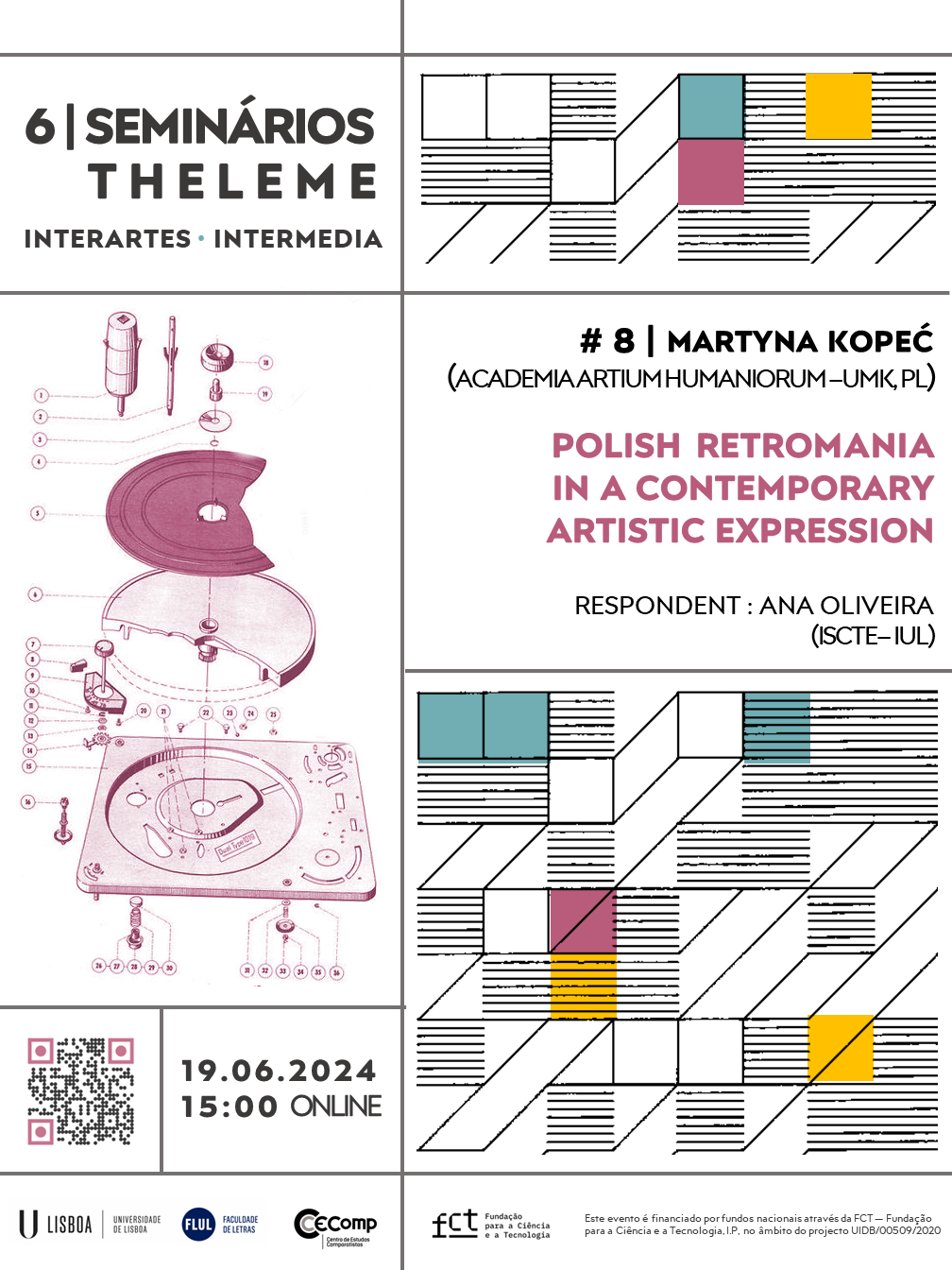Seminários THELEME #8: Polish retromania in a contemporary artistic expression
19 de Junho de 2024 | 15:00-16:30 | Zoom (evento remoto)

Na oitava e última sessão da 6.ª edição dos Seminários THELEME-Interartes & Intermédia (2023-2024), Martyna Kopeć (Universidade Nicolaus Copernicus, Toruń, Polónia) fará uma apresentação sobre “Polish retromania in a contemporary artistic expression”. Resumo da sessão e nota biográfica do orador abaixo, em inglês.
Respondente: Ana Oliveira (ISCTE—Instituto Universitário de Lisboa).
Esta sessão decorrerá no dia 19 de Junho, entre as 15:00 e as 16:30, em formato remoto (ligação Zoom).
Resumo:
Polish retromania in a contemporary artistic expression
Retromania, a term coined by Simon Reynolds, describes a process of reviving and recycling past cultural styles, especially in music. In the Polish context, it often manifests by embracing aesthetics reminiscent of the Polish People's Republic (PRL). Poland's era of being a soviet satellite state, which took place from 1945 to 1989, holds a complex place in collective memory. Some artists born after 1989 engage in aesthetic play, reconstructing and reimagining the PRL era without having any personal experience of it. In the case of Polish retromania, artists indirectly inherit the PRL's memories through family stories, cultural artifacts, and media representations. Their creative work bridges the past and the present, connecting them to a history that, despite its relative recency, is quite vague and indeterminate. This presentation studies Polish retromania as a part of historical consciousness and collective cultural memory by analysing recordings released by the Polish microlabel Superkasety Records. Examples are provided, particularly recordings featuring visual aesthetics of the 1970s, distributed on analogue media, and characterised by lo-fi sounds.
Martyna Kopeć is a PhD student in Cultural Studies at Nicolaus Copernicus University in Toruń, Poland. Her research project focuses on DIY music cultures and the realm of sound technologies in Central and Eastern Europe. It analyzes the revival of analogue media, digital emulation of analogue gear, and its components, as well as their cultural implications. Her academic interests revolve around sound studies, media studies, pop culture, and experimental music scenes.